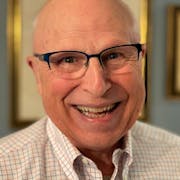Leadership 104
Who Do You Trust?
How can you know who to trust and what to trust?

Trust is a firm belief in the character, strength or truth of someone or something. Very few days go by that we do not have to trust someone or something.
For example, I have a very high level of trust that the light will come on when I walk into the room and flip the light switch. My faith is so high I don’t consider that it might not come on. But, some things can prevent the light from turning on.
A short in the light switch. A power outage. A broken connector. A burned-out light bulb. Why don’t I consider these possibilities before I throw on the switch? Because I have a significant resource of experience and expertise turning on light bulbs.
When You Lack Experience, Learn from Those You Trust Whose Experience is Greater than Your Own
Almost every day, I have experiences with friends, family, and clients that demand trusting someone or something. Yesterday I had a conversation with a financial advisor. I have known him for a long time. My experience with him personally and professionally has led me to develop a high level of trust in his expertise.
He was calling to share information about an investment opportunity that was unfamiliar to me. With no information or former experience with this investment, I relied on his expertise to help me make my decision.
I also had a conversation with a client wanting information about an associate of mine, offering a service to his organization. He did not know the person, nor was he familiar with the product. So he rightly had a low trust level and was looking for additional information.
When we identify that we need to increase our trust in someone or something, it’s important we do our due diligence.
Few people take this as seriously as they should. Due diligence can increase our trust level and give us greater assurance that we are making good choices, both personally and professionally.
4 Ways to Determine if You Can Trust Someone
As I think about who to trust in my life, I consider these four ways in who and in what I place my faith in
1. Be Diligent and Be Patient!
I am too much in a hurry most of the time. I find it is easy to come up with ideas to check backgrounds, skills, or articles on the subject or person. There is plenty of information in our connected world, but it takes time, effort, and persistence to gather it all. I have to do research! I face obstacles of time and the availability of people. It can be easy to skip over the things I know to do.
2. Don’t Let Emotions Get in the Way of Good Decision Making.
It’s easy to worry about what others will think. These are some of the worries I hear:
- What will they think if I…………
- I don’t want to hurt their feelings.
- What if I am wrong?
- What if I look silly or, worse yet, dumb?
Don’t base your decision solely on emotions. They can cloud your judgment when it comes to making the right decision.
3. Bring Disinterested Experts Alongside to Help Inform You.
These experts can be friends, business colleagues or family members who have experience in the related area of discussion. Seek to listen and understand their opinions. I even write down other points of view and keep them on my desk while trying to arrive at decisions.
But, do not give up the authority you have to make the decision. You have to live with the decision for better or worse.
4. Don’t Ignore Your Gut Feeling.
We should not make decisions solely based on our gut feelings. Making decisions without research to inform our choice is hazardous. However, it’s also essential to listen to your gut.
I can not tell you how many times I have done my due diligence in researching a person or service and everything looked just fine. But I had a gut sense that I should not go forward and I ignored that feeling to my peril.
The issue can sometimes be that I have done so much work, thinking, and prayer in the process, that it seems a waste to turn back now. But ignoring your gut leads to double trouble.
Be a Person of Character to Earn Trust
Trust is earned by people who are trustworthy. Products develop a trusted following because they deliver what they promise. The best indicator of a person’s potential success when looking to hire them is the performance they have displayed, not the title they have held professionally.
I know someone who has proved trustworthy to me over my entire life span. His word is his deed. What he says will come true. What he promises will come true. His name is Jesus!



